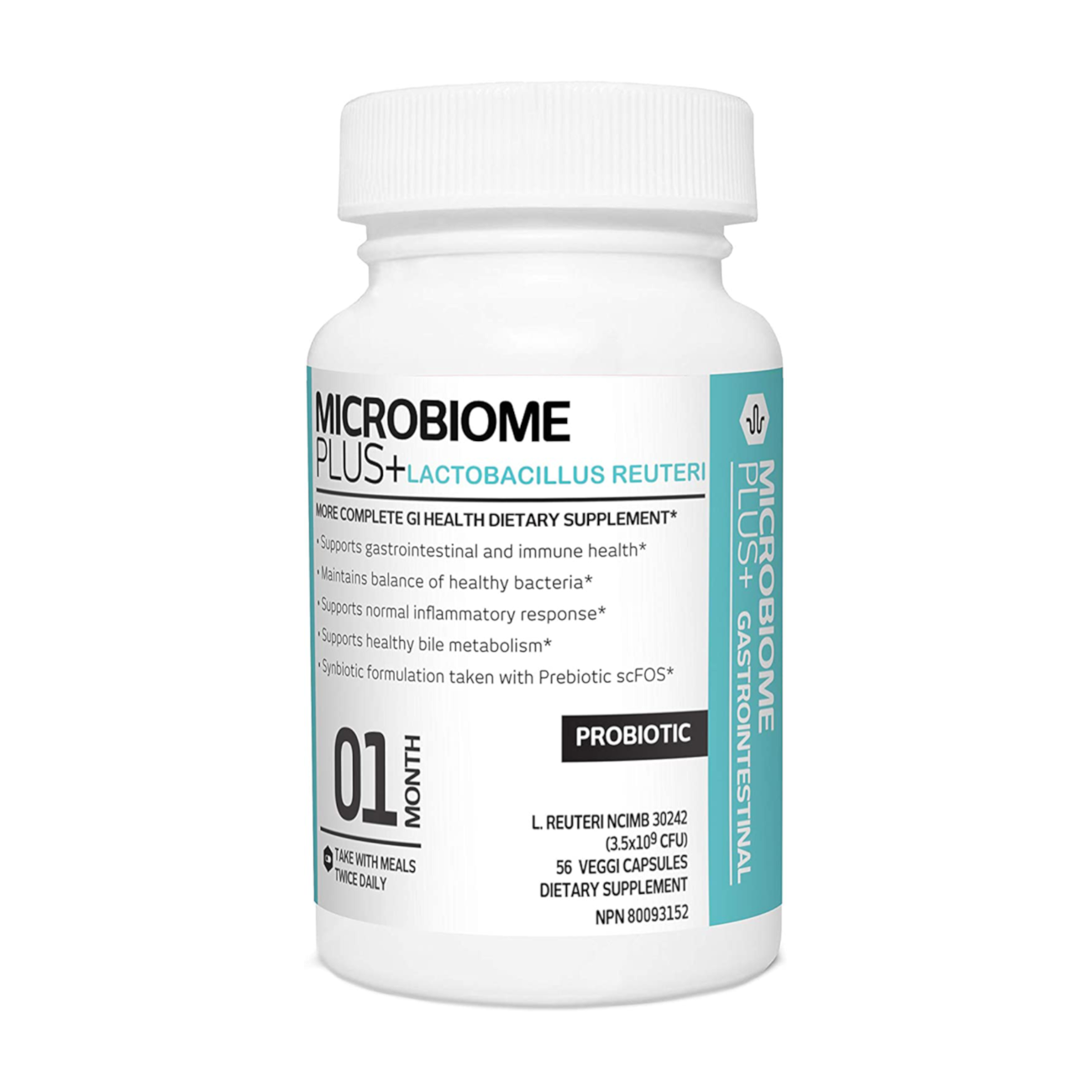Trillions of health-promoting bacteria reside in our bowels, where they function to fend off harmful microorganisms and accelerate digestion and normal bile metabolism. Mounting scientific evidence suggests that supplements containing beneficial bacteria (probiotics) or supplements supporting the growth of these good microbes (prebiotics) can preclude a variety of illnesses.
However, the question that arises is do we need to consume them on a regular basis?
Here are the top 5 reasons for taking the pro-and prebiotics daily!
1. Regulate the Normal Bowel Function and Soothe Gastrointestinal Symptoms
Pro – and prebiotics are a gateway to a healthy gut and a healthy gut is a gateway to a healthy body. It’s no secret that these viable bacterial strains regulate absorption and digestion of nutrients and strengthen the protective mucosal gut barriers, and thus, prevent the invasion of the disease-causing microorganisms. The subsequent reduction in the gut inflammation aids in obviating and healing gastrointestinal (GI) tract ulcers. 1
The daily domino effect is a healthy, flourishing gut (flora) and body, conducive to functioning optimally.
In short, you can count on probiotics for virtually any GI complaint.
2. Maintenance of Optimal Cardiovascular Health
A deranged lipid profile, a high blood pressure, and obesity are major cardiac risk factors. Daily consumption of probiotics has a positive impact on our cardiac health. They lower the bad cholesterol (LDL) levels while improving the HDL (good cholesterol) levels. 2 The improved cholesterol levels in turn cause a modest drop in blood pressure. 3
What’s more? Daily ingestion of these favorable microbes can help you jumpstart weight loss. Excerpts from several studies support the notion that weight gain and obesity have an association with altered gut flora. 4
Thus, populating our intestine with the good ones will optimize our cardiac health.
3. Rev Up the Immune System
Our immune system does a remarkable task to safeguard us from sickness-inducing invaders and keeping infections at bay. Taking probiotics every day serves to fortify the immune system and prevent infections like cold and flu. If you’re looking for another reason to work more pro – and prebiotics into your schedule, this is the one.
4. Prevent and Treat Antibiotic-Associated GI Side Effects
In the course of severe infections, antibiotics are hailed as lifesavers. Having that said, the usage of antibiotics causes GI upset predominantly nausea/vomiting, and diarrhea. 5 Moreover, antibiotics are shown to alter the framework of the gut microbiota. 6 Needless to say, supplementing pro – and prebiotics in these cases will help restore the lost healthy gut flora as well as mitigate GI distress. 5
The bottom-line: Antibiotic-associated GI upset warrants the use of probiotics.
5. Reinstate the Gut Ecosystem Destroyed by the Standard Western Diet
The genetically engineered foods have taken over the major part of our nutritional regime by leaps and bounds. The current trendy Western diet largely comprises of foods with a high-GMO content. These foods disrupt the composition of gut bacteria in ways that aggravate a whole host of systemic illnesses. The smoking GMO gun is glyphosate. 7
Thankfully, regular supplementation with probiotics can reverse the diet-triggered incongruity of the microbial gut system.
Written by:
Dr. Rasheed Huma
References
- Hemarajata P, Versalovic J. Effects of probiotics on gut microbiota: mechanisms of intestinal immunomodulation and neuromodulation. Therapeutic Advances in Gastroenterology. 2013;6(1):39-51. doi:10.1177/1756283X1245929.
- Thushara RM, Gangadaran S1, Solati Z et al. Cardiovascular benefits of probiotics: a review of experimental and clinical studies. Food Funct. 2016;7(2):632-42. doi: 10.1039/c5fo01190f.
- Khalesi S, Sun J, Buys N et al. Effect of probiotics on blood pressure: A systematic review and meta-analysis of randomized, controlled trials. Hypertension. 2014;64(4):897-903. doi: 10.1161/HYPERTENSIONAHA.114.03469.
- Tsai F, Coyle WJ. The microbiome and obesity: Is obesity linked to our gut flora? Curr Gastroenterol Rep. 2009;11(4):307-13.
- Pattani R, Palda VA, Hwang SW, Shah PS. Probiotics for the prevention of antibiotic-associated diarrhea and Clostridium difficile infection among hospitalized patients: Systematic review and meta-analysis. Open Medicine. 2013;7(2):e56-e67.
- Robinson CJ, Young VB. Antibiotic administration alters the community structure of the gastrointestinal micobiota. Gut Microbes. 2010;1(4):279-284. doi:10.4161/gmic.1.4.12614.
- Samsel A, Seneff S. Glyphosate, pathways to modern diseases II: Celiac sprue and gluten intolerance. Interdisciplinary Toxicology. 2013;6(4):159-184. doi:10.2478/intox-2013-0026.










